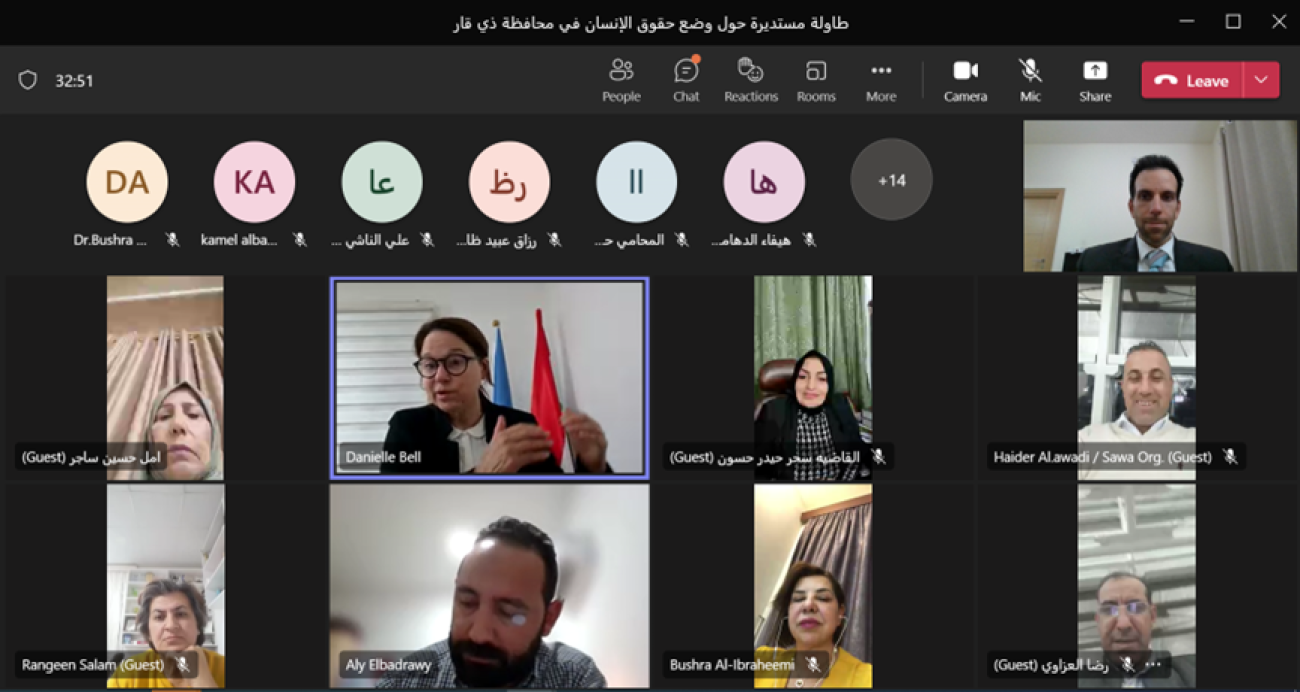Within the framework of 16 Days of Activism against Gender-Based Violence, the UNAMI Human Rights Office organized a high-level panel of experts that brought together attorneys, judges, civil society activists and human rights defenders to discuss institutional and legal reform to enhance the protection of women and girls. The panel included the following experts who renewed calls for accountability to counter violence against women :
-Judge Sahar Haidar, a Domestic Violence Prosecutor in the Criminal Court of Karkh, who discussed the functioning and gaps in the work of the Domestic Violence Courts and Family Protection Units;
-Dr. Bushra Al-Obaidi, a recognized expert in international criminal law and Professor of Law at Al Rafidain University College, who presented recommendations on how to improve the institutional framework for domestic violence cases; and
-Amal Al-Sajr, a Women’s Rights Attorney, who spoke about her experience representing female victims in over 200 domestic violence cases.
Danielle Bell, the Chief United Nations Human Rights Officer in Iraq, in her opening remarks encouraged the Government of Iraq to “rigorously pursue accountability for gender-based crimes, including domestic violence”. She highlighted that “the absence of specific legal provisions criminalizing domestic violence is a key factor accounting for its high prevalence throughout Iraq”. She further noted that “Article 41 of the Penal Code gives the right of husbands to ‘discipline’ their wives, thereby transforming acts of criminal violence into mere family disputes”.
During the panel discussion, participants discussed various institutional reforms, including facilitating access of women and girls to Family Protection Units. Experts discussed provisions in Iraqi law that have a negative impact on women, including Article 41 of the Penal Code, which shields men from prosecution for any act that constitutes a punishment of his wife, and Article 409 of the same law, which mitigates the sentence of men convicted for so-called “honour killings.” Panelists highlighted how these gaps in protection discriminate against women.
Dr. Bushra Al-Obaidi noted that “the most violent weapon employed when committing violence against women is the law or legislation”. She highlighted numerous laws that “contribute to discrimination and justify violence against women, promoting a culture of impunity”.
Participants proposed a series of reforms needed to combat this culture of impunity, including repealing Articles 41 and 409 of the Penal Code. Judge Sahar Haidar cited the need to increase the number of Family Protection Units. Participants called for the adoption of a dedicated Anti-Domestic Violence Law in line with international standards. They also called for facilitating access of survivors and those at risk to services, including shelters and Domestic Violence Courts, in order to further strengthen their protection and guarantee the full spectrum of their rights in Iraq.





